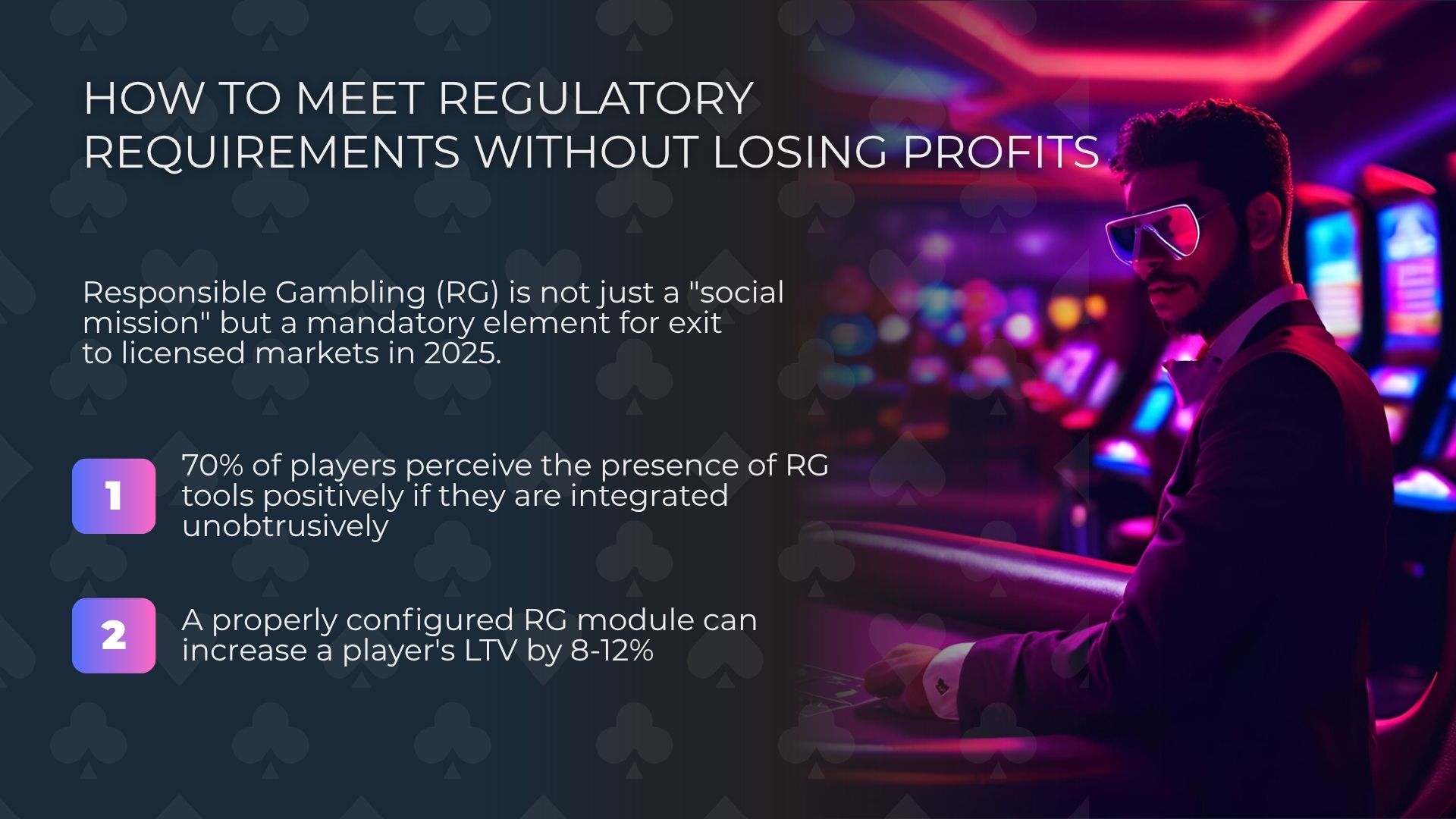 In 2025, the concept of Responsible Gambling (RG) has firmly transitioned from an ethical option to a regulatory standard—an essential prerequisite for operating legally and sustainably in regulated markets. Most jurisdictions, including key ones like the United Kingdom, Malta, reformed Curaçao, and rapidly growing Latin American markets such as Colombia and Brazil, now enforce concrete RG requirements. These range from the technical implementation of self-control tools to behavioral monitoring and mandatory reporting.
In 2025, the concept of Responsible Gambling (RG) has firmly transitioned from an ethical option to a regulatory standard—an essential prerequisite for operating legally and sustainably in regulated markets. Most jurisdictions, including key ones like the United Kingdom, Malta, reformed Curaçao, and rapidly growing Latin American markets such as Colombia and Brazil, now enforce concrete RG requirements. These range from the technical implementation of self-control tools to behavioral monitoring and mandatory reporting.
Players have also become more sensitive: heightened competition, increasing consumer awareness, and media scrutiny of addiction issues compel businesses not just to meet basic standards but to proactively develop RG strategies that genuinely work. Yet, many operators reasonably ask: will this hurt profits?
The answer: not if approached systematically. In fact, a well-executed RG strategy can extend player lifetime value (LTV), reduce fraud and conflict risks, and even serve as a competitive edge when operating in white jurisdictions or partnering with major B2B clients.
Regulatory Requirements in 2025: What Every Operator Must Know
In 2025, adherence to Responsible Gambling (RG) principles is a core component of operational compliance for all licensed operators. Regulators have tightened measures aimed at player protection and industry transparency. Below is an overview of key RG requirements.
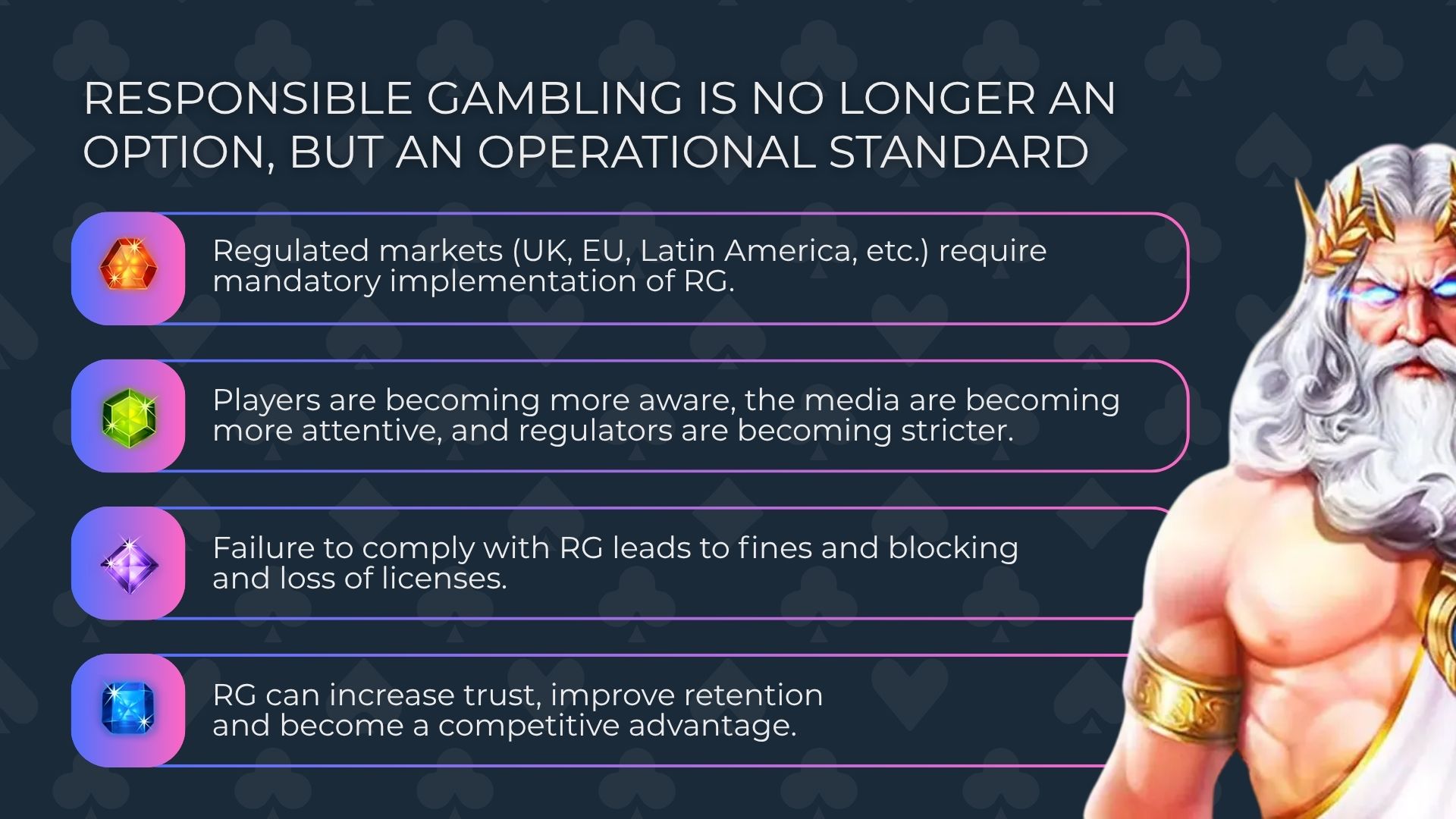
1. Player Self-Control Tools
Self-exclusion: Players must be able to temporarily or permanently block access to their accounts.
Cooling-off periods: Voluntary breaks from gambling (e.g., 24 hours / 7 days / 30 days).
Limits: Players must be able to set:
- Deposit limits (daily / weekly / monthly),
- Loss limits,
- Session time limits.
2. Mandatory Verification and Monitoring
Comprehensive KYC / AML profile:
- Age verification (18+ or 21+),
- Source of funds checks (especially for high-volume players),
- Identity and address verification.
Behavioral analysis:
- Automatic detection of problematic behavior (e.g., escalating deposits, betting frequency, nighttime sessions),
- Alerts and soft interventions in high-risk cases.
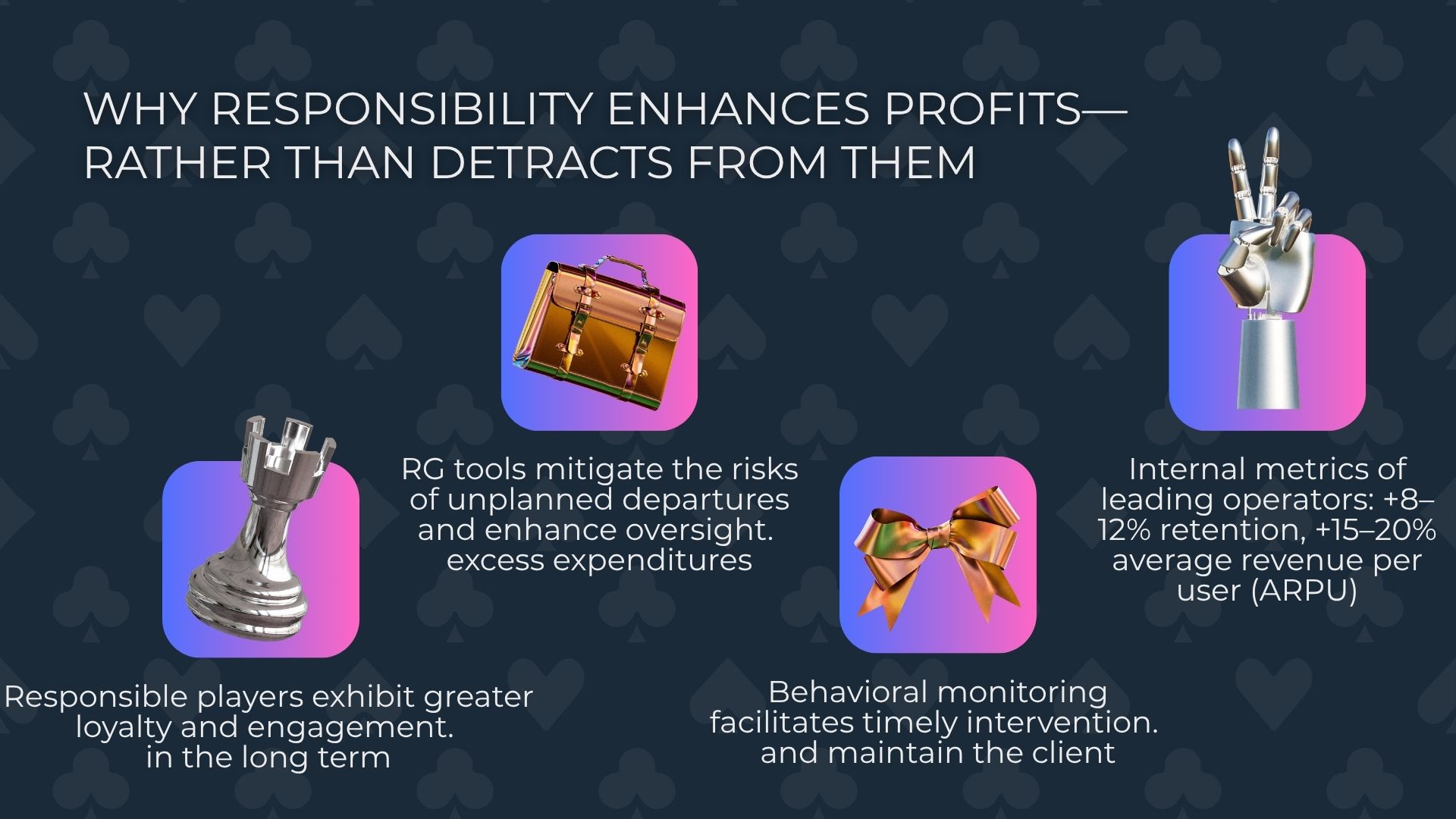
3. Transparent Communication and Support
Player notifications:
- Clearly visible links to RG pages and support services,
- Session duration notifications,
- Messages upon hitting limits or active blocks.
Mandatory access to problem gambling support organizations.
4. Marketing and Advertising Controls
- No marketing to self-excluded players.
- Explicit opt-in required for promotional messaging.
- Prohibition of misleading advertising (e.g., “guaranteed wins” or false bonuses).
- Protection of vulnerable groups: minors, individuals with gambling issues, financially at-risk users.
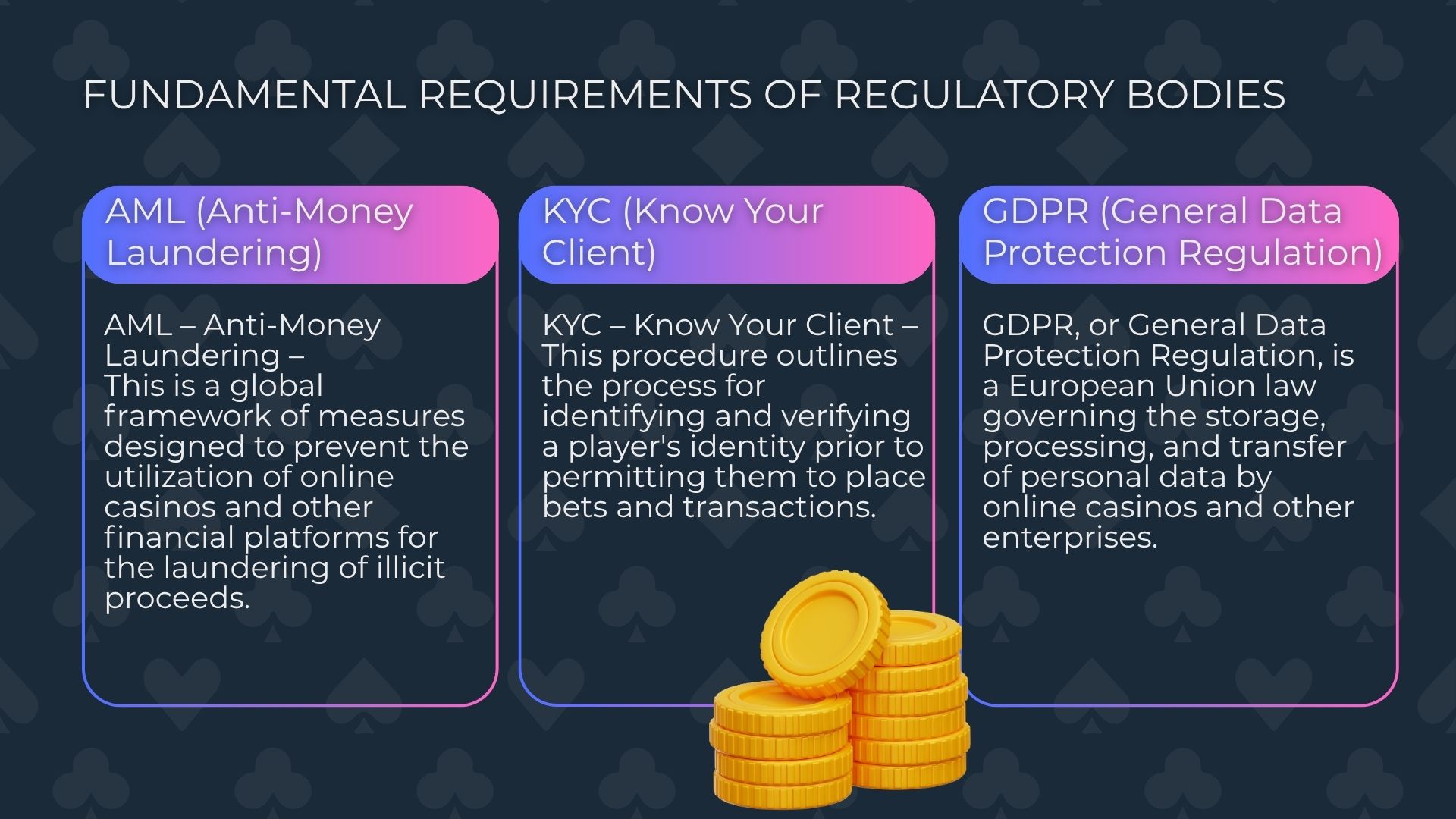
5. Technical Implementation of RG Features
All RG tools must be implemented on both frontend and backend levels. When using a prebuilt online casino script, it is crucial to ensure compatibility with RG requirements:
- Instant enforcement of limits and exclusions,
- Systems must minimize circumvention risk through re-registration via device tracking, behavioral analytics, and external exclusion databases,
- Secure storage of RG-related data.
6. Operator Responsibilities
- Logging and regulatory reporting of RG actions,
- Staff training (especially Customer Support and VIP managers),
- An internal RG policy subject to regular audits. All RG tools must be backend-integrated and capable of interfacing with national self-exclusion registries where required (e.g., GAMSTOP in the UK, Spelpaus in Sweden).
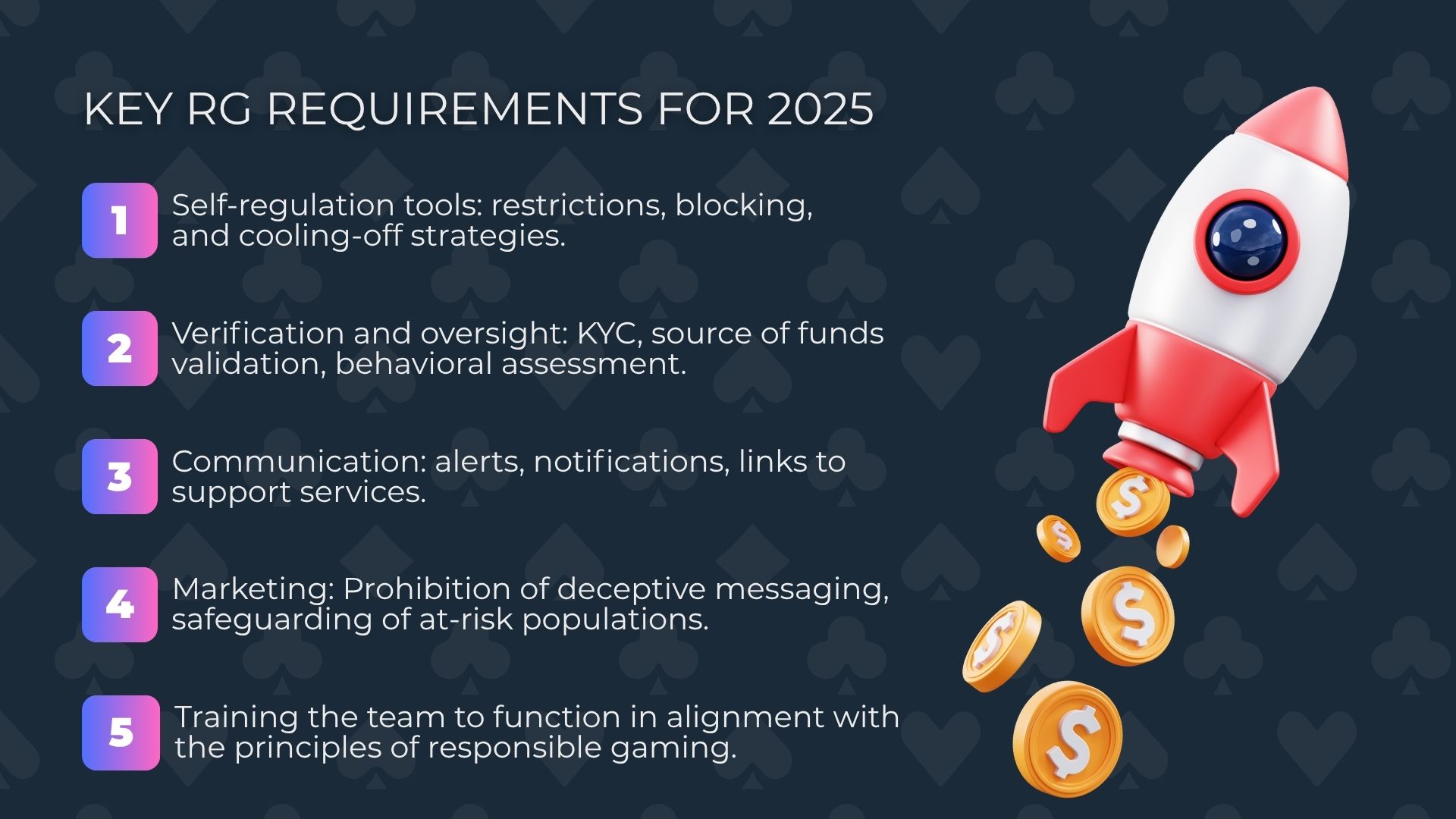
7. Non-Compliance Consequences
- Fines reaching millions of euros in severe cases (e.g., UKGC, MGA),
- License suspension or revocation,
- Website access blocking (including ISP-level filtering),
- Restricted B2B partnerships—as more aggregators and platforms require RG compliance from clients.
By 2025, Responsible Gambling regulations are no longer about ethics—they are operational imperatives. Compliance impacts not just legality but also sustainability, partnerships, and customer loyalty. Therefore, an effective RG strategy must be embedded in the product architecture and support workflows—with an emphasis on automation, preventive measures, and transparency.
The Financial Myth: Why Responsible Gambling Does Not Reduce Profit
One persistent industry myth claims that strict implementation of RG limits player activity and thus reduces revenue. This assumption is false. Data and real-world experience show that RG tools not only maintain but can increase long-term profitability by boosting LTV and ARPU while minimizing risk and overhead.
A Responsible Player ≠ An Inactive Player
Many operators fear that limits and exclusions will drive away high-value customers. In fact, behavioral data suggests the opposite:
- Players using RG tools often continue to play actively but with greater awareness and over longer periods,
- In the VIP and mid-high segments, players appreciate transparency and spending control, reducing impulsivity and early churn caused by negative experiences,
- Operators implementing behavioral monitoring and recommended limits have reported 8–12% reductions in churn among key cohorts (based on internal reports from iGaming platforms in 2023–2024).
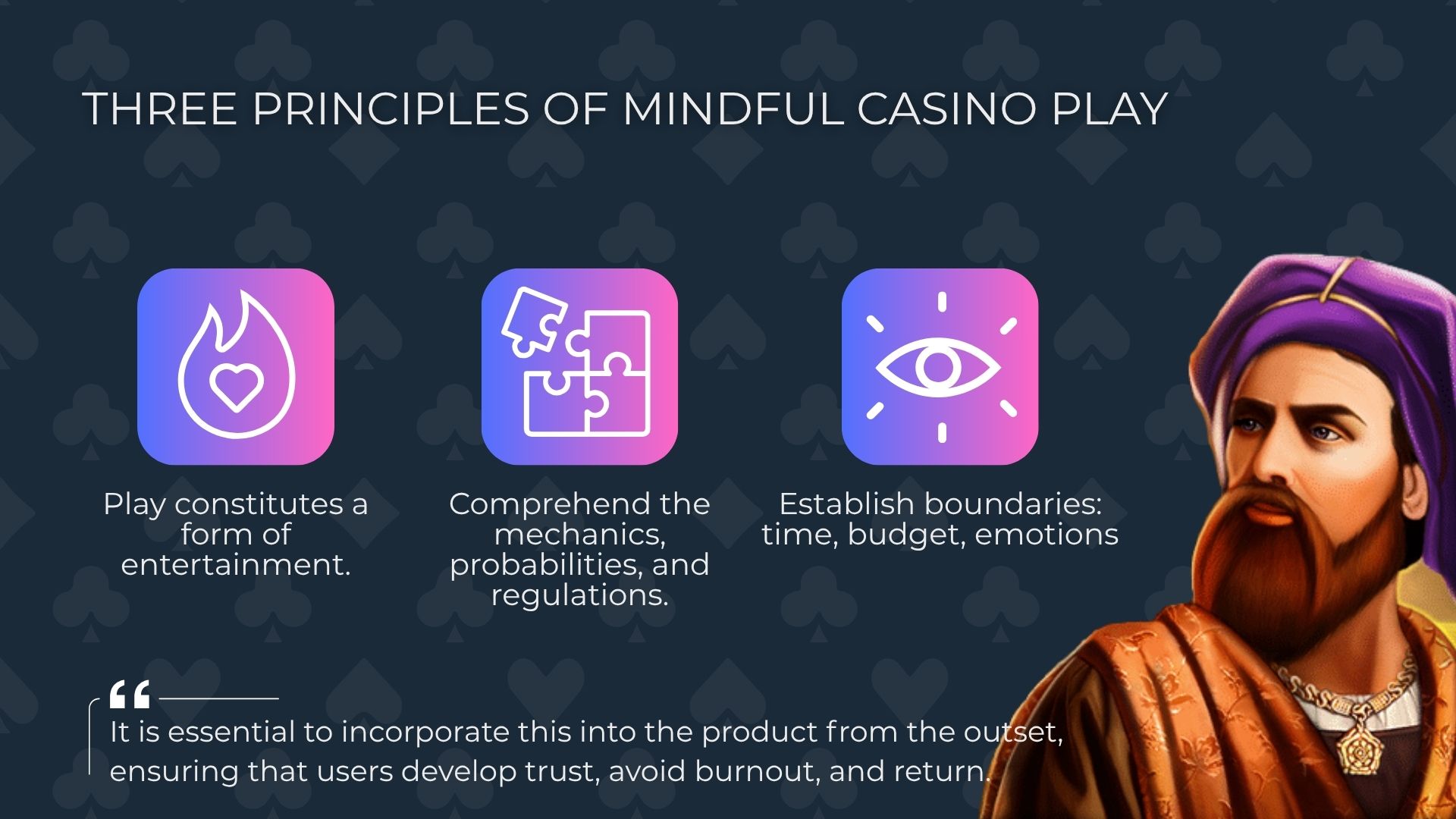
Trust and Reputation = Higher LTV and ARPU
A responsible approach builds trust:
- Players perceive the brand as caring and responsible, increasing engagement and loyalty,
- Users with active limits tend to have higher LTVs—playing more regularly, avoiding destructive pauses, and returning with high frequency.
Internal data from several B2C brands (including EU .com and regulated markets) indicate:
- Players with deposit limits show 15–20% higher ARPU over 6+ months.
Fewer Conflicts, Chargebacks, and Regulatory Risks
Operators neglecting RG often face:
- Chargebacks and disputed transactions from players citing gambling addiction,
- Regulatory audits, complaints, and lawsuits,
- Increased legal and support costs.
In contrast, RG integration reduces these burdens:
- Many chargebacks arise when players argue that the operator failed to provide adequate RG tools,
- RG practices allow early identification of at-risk users and prevent escalations,
- Auditors, investors, and payment partners increasingly require proof of responsible practices as a condition of cooperation.
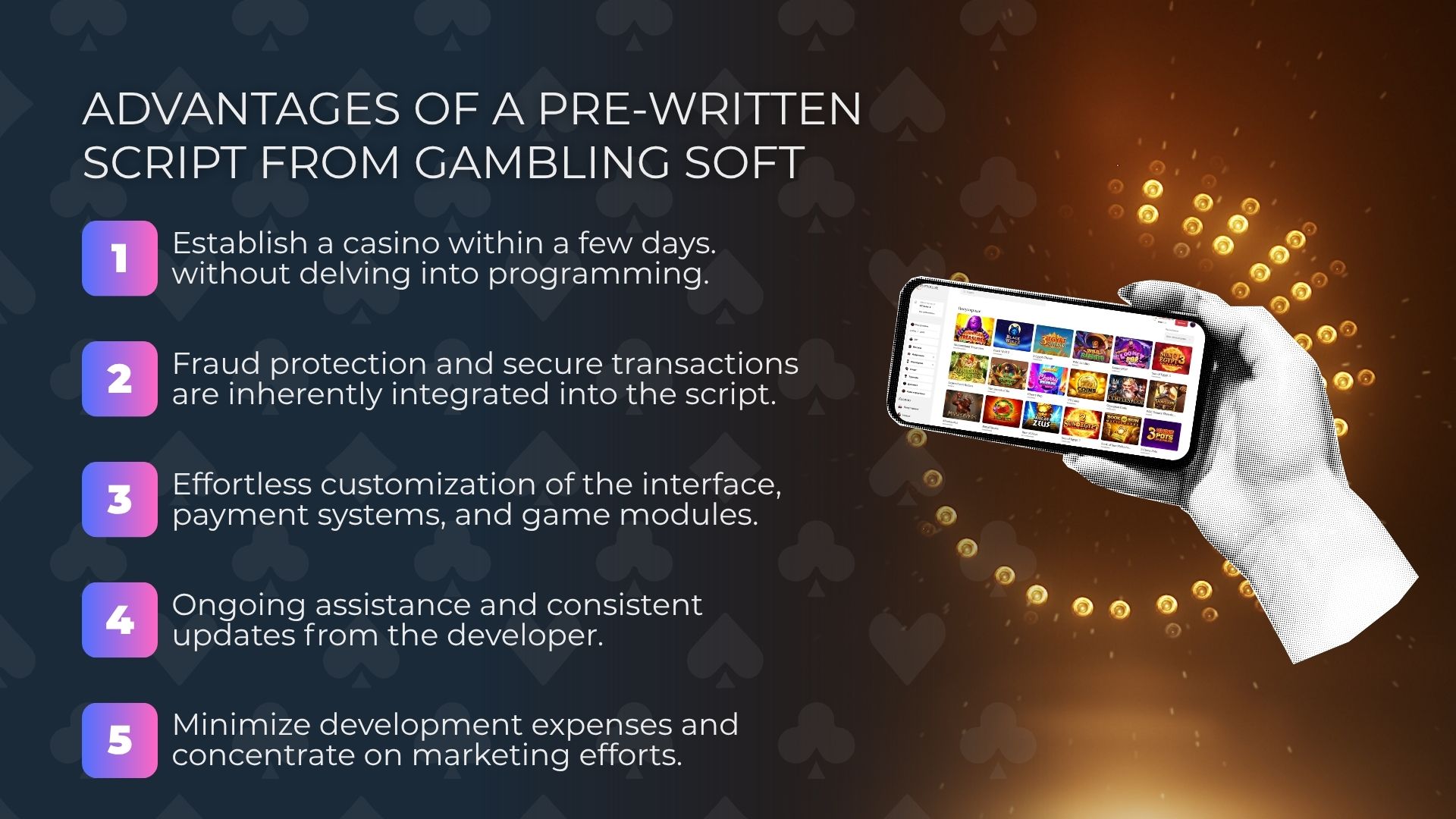
Conclusion
In 2025, Responsible Gambling is a must-have—not an option. It is no longer seen as a goodwill gesture or simple compliance component. It is a foundational requirement for operating in regulated markets, partnering with major platforms, and earning player trust.
It’s vital to understand: RG is not about restriction—it’s about building a sustainable business model. A competently implemented RG strategy reduces legal risks, enhances user experience, strengthens brand trust, and ultimately increases customer lifetime value.
Moreover, well-integrated RG becomes a competitive differentiator—especially if factored in during platform design or script implementation, reducing retrofit costs and accelerating market entry, particularly in Europe, Latin America, and Asia’s white markets.
Operators who prioritize transparency, RG automation, and proactive analytics win in the long term—they become more appealing to players, regulators, and investors alike.
Responsible Gambling is now an essential part of a mature business strategy. And the sooner it’s embedded into your product architecture and operational processes, the better your chances of achieving sustainable growth and scalable, legal operations.







